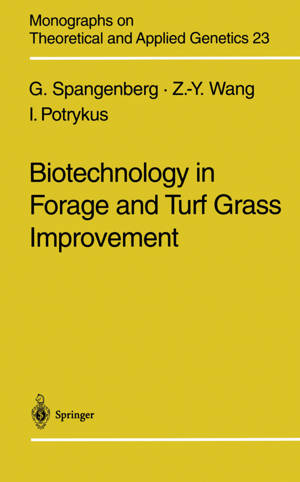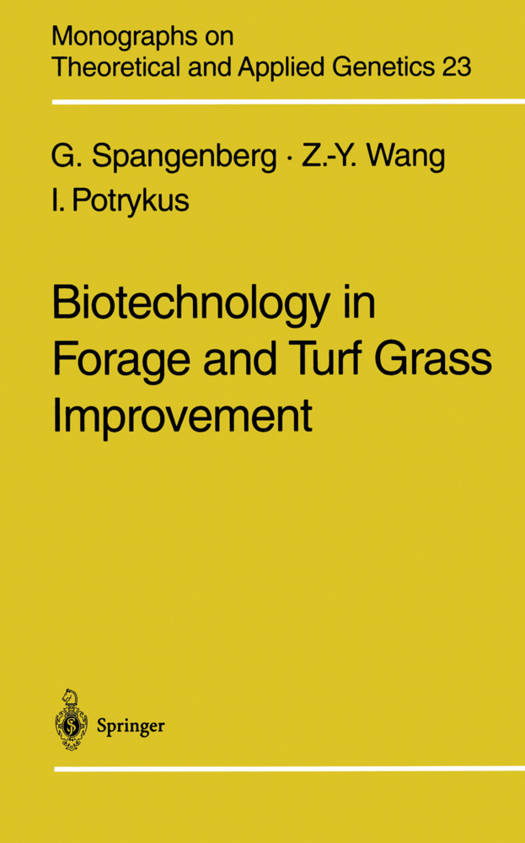
- Afhalen na 1 uur in een winkel met voorraad
- Gratis thuislevering in België vanaf € 30
- Ruim aanbod met 7 miljoen producten
- Afhalen na 1 uur in een winkel met voorraad
- Gratis thuislevering in België vanaf € 30
- Ruim aanbod met 7 miljoen producten
Zoeken
€ 167,95
+ 335 punten
Omschrijving
Worldwide, acreage under grassland is estimated to be twice that of cropland. Two closely related genera, Festuca L. (fescues) and Lolium L. (ryegrasses) are of significant value in temperate grasslands. These genera (tribe Poeae, subfamily Pooideae) contain well-adapted, very productive grasses widely distributed in temperate and cool climates in Europe, North and South America, North, East and South Africa, Asia, Australia and New Zealand, where they are used for agricultural and recreational purposes (Jauhar 1993). They are important for grazing, stabilizing soil for agriculture, and enhancing the environment through multiple uses, such as forage, conservation and turf (Barnes 1990). Therefore, in the family Poaceae, the Festuca-Lolium group of grasses is among the most extensively studied by agronomists, plant breeders, animal scientists, taxonomists and cytogeneticists. The potential of biotechno- logical approaches has been recognized for the development of improved fescue and rye grass cultivars (Barnes 1990; Kau11990; Jauhar 1993). 1. 1 Agronomic Importance of the Festuca-Lolium Complex The Festuca-Lolium complex involves some well-adapted, highly productive persistent species which are widely used for soil stabilization, for agricultural purposes and as amenity grasses. For temperate grasslands, tall fescue, meadow fescue, Italian ryegrass and perennial ryegrass are particularly impor- tant species which show complementary desirable traits, such as palatability and fast initial growth of the ryegrasses, and winter hardiness, persistency combined with continued high production after the second harvest year of the fescues.
Specificaties
Betrokkenen
- Auteur(s):
- Uitgeverij:
Inhoud
- Aantal bladzijden:
- 201
- Taal:
- Engels
- Reeks:
- Reeksnummer:
- nr. 23
Eigenschappen
- Productcode (EAN):
- 9783642720536
- Verschijningsdatum:
- 19/08/2012
- Uitvoering:
- Paperback
- Formaat:
- Trade paperback (VS)
- Afmetingen:
- 156 mm x 234 mm
- Gewicht:
- 303 g

Alleen bij Standaard Boekhandel
+ 335 punten op je klantenkaart van Standaard Boekhandel
Beoordelingen
We publiceren alleen reviews die voldoen aan de voorwaarden voor reviews. Bekijk onze voorwaarden voor reviews.








